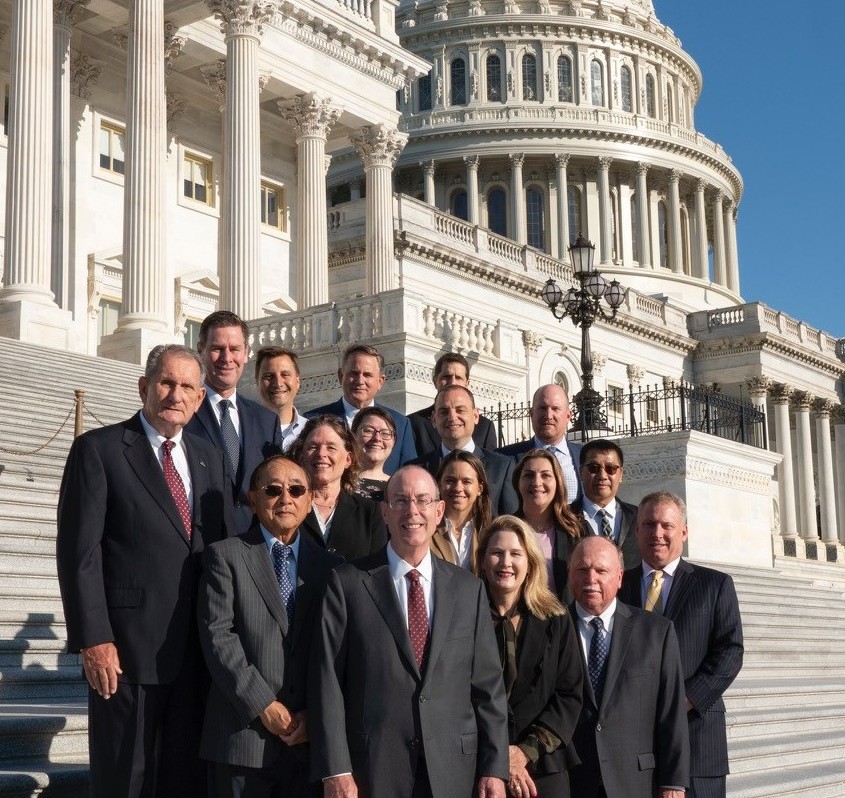This website uses cookies so that we can provide you with the best user experience possible. Cookie information is stored in your browser and performs functions such as recognising you when you return to our website and helping our team to understand which sections of the website you find most interesting and useful.
Press Room
Vinyl Industry Leaders Advocate Use of Vinyl in Water and Clean Energy Infrastructure
WASHINGTON, DC, May 17, 2022 – Today, leaders of the U.S. vinyl industry met with members of Congress during the Vinyl Institute’s annual Congressional Fly-in event in Washington, DC. They discussed how vinyl material attributes and products are part of the solution when it comes to reducing our nation’s carbon footprint, especially for water and clean energy infrastructure.
“Industry leaders are underscoring the role that vinyl products can play in reducing carbon emissions,” said Ned Monroe, President & CEO of the Vinyl Institute. “Vinyl is often a lower carbon alternative relative to other materials for water and clean energy infrastructure.”
Many vinyl building products are known for durability and are in use for an extended period which minimizes the carbon impact of replacement materials. For example, life cycle assessments and studies show that PVC pipe can have a service life of 100+ years and has a low break rate compared to other piping materials, which results in less carbon being emitted for repairs and replacement.
The performance attributes of many PVC products can also reduce carbon impacts where they are applied. For instance, PVC pipes used in water systems provide long-term pumping energy savings due to corrosion resistance, smooth walls, and large conveyance area. In addition, the amount of embodied energy used to produce PVC pipe is significantly less than other piping materials. The noncorrosiveness of PVC pipes also make them an optimal choice in phosphate and nitrate abatement systems on farms. And inherently fire-resistant PVC-jacketed cable and wiring and PVC conduit will be instrumental in the implementation of broadband and electric vehicle (EV) infrastructure.
The bipartisan Infrastructure and Investment Jobs Act (IIJA) was signed into law in November of 2021. It authorizes $1.2T in spending for transportation and infrastructure including $55B allocated for water infrastructure and more than $75B allocated for broadband deployment and EV charging stations and infrastructure.


